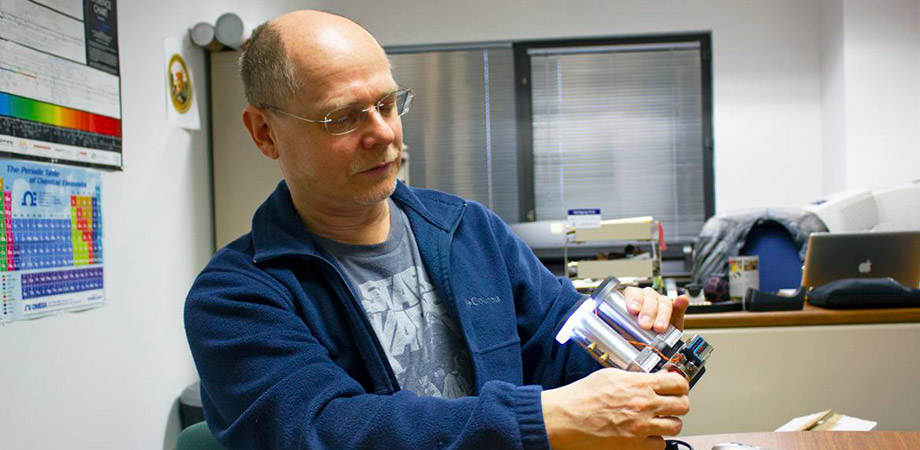Wolfgang Fink: The 2023 SPIE Aden and Marjorie Meinel Technology Achievement Award

Wolfgang Fink is a theoretical physicist and the inaugural Edward and Maria Keonjian Endowed Chair of Microelectronics with joint appointments in the Departments of Electrical and Computer Engineering; Biomedical Engineering; Systems and Industrial Engineering; Aerospace and Mechanical Engineering; and Ophthalmology and Vision Science at the University of Arizona. Previously, he was a Senior Researcher at NASA’s Jet Propulsion Laboratory (JPL), among other appointments. Pursuing an interdisciplinary, systems-engineering approach in human-machine interfaces, evolutionary optimization, and autonomous systems, Fink has focused his research on biomimetic systems, biomedical sensor development, artificial vision, computer-optimized design, cognitive systems, and autonomous robotic space exploration, and has been an integral part of large-scale, multi-institutional, collaborative enterprises. He was one of the principal investigators of the US Department of Energy’s Artificial Retina Project, a multi-disciplinary, six-laboratory-strong effort to develop an implantable microelectronic retinal device that restores useful vision to people blinded by retinal diseases; he was also a founding co-investigator of the NSF-funded Biomimetic MicroElectronic Systems Engineering Research Center. The broad goals of the Center were to develop retinal implants for the blind, intramuscular stimulators for the paralyzed and cortical implants for stroke patients. This work led to the first artificial retina to receive widespread commercial approval, the Argus II by Second Sight Medical Products.
An SPIE Fellow, Fink has been active as an SPIE conference chair and conference committee member for SPIE Defense + Commercial Sensing as well as a presenter and author. In 2017, he was interviewed about distributed autonomous platform for robotic planetary exploration as part of SPIE Defense + Commercial Sensing.
“During his tenure at JPL, Professor Fink was an integral part of a team that pioneered the use of snapshot hyperspectral imaging in ophthalmology using a computed tomography imaging spectrometer coupled to a fundus camera for retinal imaging,” says JPL Senior Research Scientist Sarath D. Gunapala. “The first application was retinal oximetry using multi-wavelength oximetry models that benefitted greatly from Professor Fink’s stochastic optimization methods to determine the optimal wavelengths. This disruptive ocular imaging modality has a wide range of applications, particularly for the early detection of retinal diseases. And throughout his career, Professor Fink has actively sought out collaboration with experts in medical technology and healthcare, including doctors, surgeons, and system designers. He has provided guidance to students and junior colleagues, and has built extraordinarily productive research teams at JPL, Caltech, and the University of Arizona, creating and enabling not just key technological innovations, but ensuring their wider implementation as well.”
Meet the other 2023 SPIE Society Award recipients.
Read more about Wolfgang Fink and the Aden and Marjorie Meinel Technology Achievement Award.



